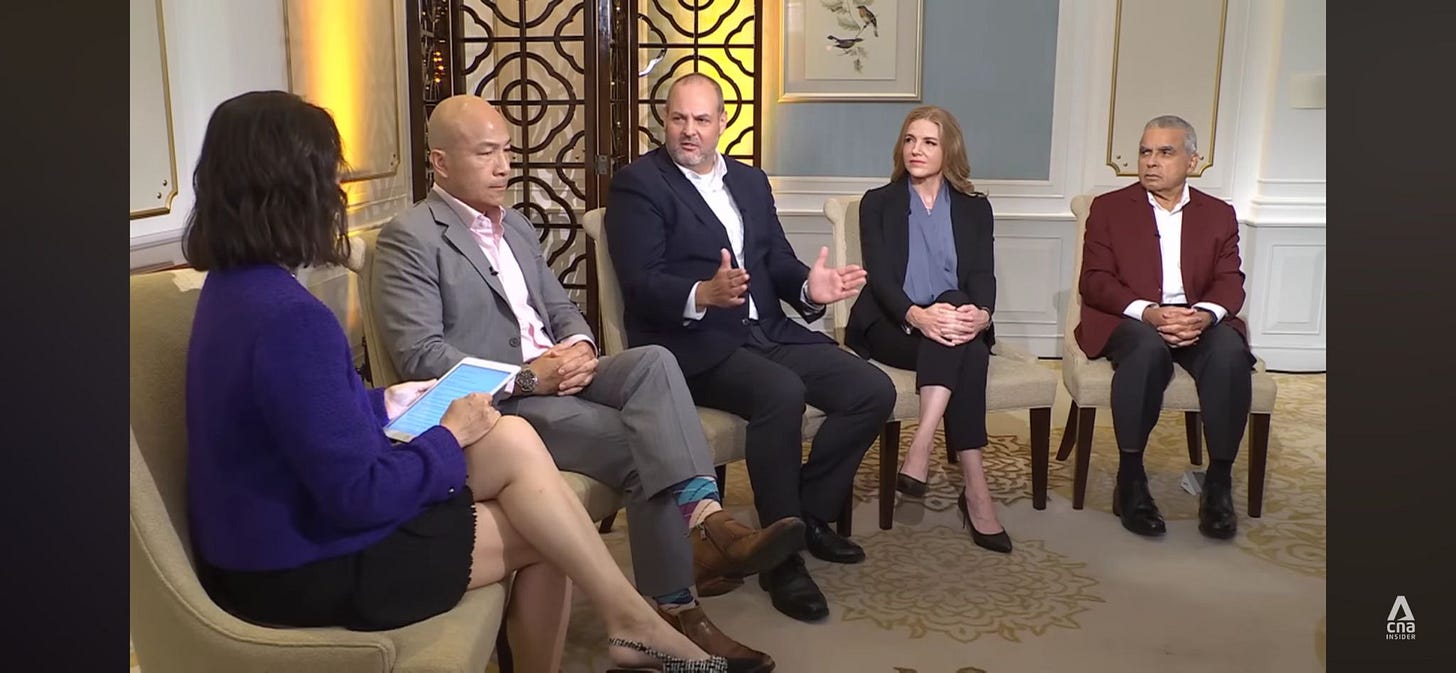What lies ahead for US-China relations in the Trump Administration?
The next four years are likely to see China's relationships with the US and Europe continue to worsen.
Dear Friends and Colleagues,
I want to share two brief publications about the future for U.S.-China relations and the implications of North Korea’s entry into the Ukraine war.
I am also sharing a TV panel discussion taped the day after the U.S. presidential election, featuring three friends and a range of views about the election outcome and what it means for Asia.
North Korea in the Ukraine War Presages an Era of Confrontation With China
North Korea’s deployment of troops to support Russia’s invasion of Ukraine expands the conflict, intertwining security challenges in Asia and Europe. This development has significant implications for NATO, South Korea, and China, particularly if China’s support for Russia expands and Ukraine’s defenses degrade, effectively ensuring China’s adversarial relationship with the West.
The Future of the US-China Relationship
The US-China relationship is poised for tension and intensified competition over the next four years. President-elect Trump’s cabinet selections are sharply critical and distrustful of China, especially on trade, with promises of tariffs and pressure to onshore more manufacturing in the United States. The US and China are rapidly modernizing their militaries to counter one another, but Trump’s ambivalence towards allies and promises to gut the government and military raises doubts about the credibility of Washington’s commitments. Xi Jinping may seek to build personal rapport with Trump to advance Beijing's interests, and Trump might reciprocate, but it is doubtful Xi is in a position to compromise and drastically change industrial policies and national security strategies to accommodate Trump’s demands for reciprocal market access.
China’s internal challenges – a slowing economy, high unemployment, capital flight, private frustration with the Communist Party’s domination of society and economy – make many Chinese citizens resigned to difficult times ahead, regardless of the direction of US-China relations. Xi Jinping’s recurring admonition to prepare for “rough seas” may be more about China’s mounting domestic challenges than a prediction of future US-China relations.
https://jstribune.com/thompson-the-future-of-the-us-china-relationship/
What Does Another Trump Presidential Term Mean For The US, Asia & The World?
The highly charged and deeply divisive US elections are over. How will the next American president view the Asian region and its place in US foreign policy? What will the next commander-in-chief do about the conflicts in Ukraine and the Middle East? And how will domestic politics steer the President’s policies on global issues like climate change and trade?
When asked about how we felt about the election outcome, I responded that I was very pleased with the process itself. It was a clean election that produced a clear outcome quickly, proving that democracy works and is a model of governance for the rest of the world.
It was great to be joined by Joseph Liow, Angela Mancini, and Kishore Mahbubani, with Genevieve Woo adeptly moderating.
As always, feedback and alternative perspectives are always welcome.
Of course, if you no longer want to receive this periodic mailing, you can unsubscribe at the link below.




